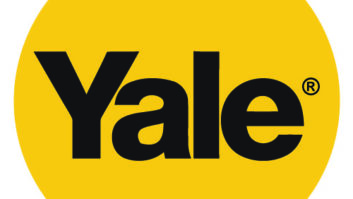The U.S. Supreme Court’s recent decision that peer-to-peer (P2P) file-sharing services can be sued and shut down if they intentionally induce copyright infringement will likely have little impact on sales of MP3 portables, analysts and marketers told TWICE.
Although P2P services played a significant role in driving MP3 player sales among early adopters, other factors will drive future sales as the market broadens, they said. Those factors include the growing availability of authorized downloadable content, ease of use and price. Besides, they said, unauthorized P2P services will never be completely eliminated.
In its 9-0 decision against P2P services Grokster and StreamCast Networks, the Court held that “one who distributes a device with the object of promoting its use to infringe copyright[s], as shown by clear expression or other affirmative steps taken to foster infringement, is liable for the resulting acts of infringement by third parties.” It will be up to a lower court, however, to determine whether Grokster and StreamCast Networks intentionally encouraged infringement.
Whatever the impact on MP3 player sales, trade groups, including the Consumer Electronics Association (CEA), fear that the decision could hinder technology development. That is because the Court failed to define the standards by which companies could be found to be inducing copyright infringement. The ruling’s lack of direction will cause technology developers to think twice about pursuing innovative technologies for fear of lawsuits by deep-pocket movie and music companies, they contend. (See TWICE.com, “Supreme Court Upholds Betamax Decision,” June 27.)
Analysts and marketers, however, don’t expect the decision to chill MP3 player sales. First of all, said Gartner’s research director Mike McGuire, it will take time for the lower court to determine that Grokster and StreamCast intentionally induced infringing activities by their users. Even if they are shut down, he said, there are many alternative P2P services already available, and new ones will pop up to replace services that close.
“Committed P2P users will find other sources,” he told TWICE.
Second, under the decision, P2P services are legal as long as they don’t “induce” users to violate copyrights, and it will take time for the courts to define the term, McGuire said. Third, a “big chunk” of content on MP3 portables is still ripped from users’ CD collections or from friends’ CD collections, he said.
On top of that, “reasonably compelling alternatives” in the form of authorized download services are growing in availability and popularity, in part because of “decent” selections of 1.5 to 1.7 million songs that are legal and offer reliable service. Unlike authorized sites, he explained, P2P services are loaded with low-bit-rate recordings, low-quality recordings from scratchy vinyl records, and “spoof” files planted by the recording industry to sour the P2P experience, he said. In some cases, advertising is masquerading as P2P music files, other analysts said.
Forrester Research analyst Ted Schadler agreed that reliability, ease-of-use and legality are becoming more important factors driving the MP3 portable market now that the market’s demographics are broadening beyond young early adopters. P2P services played “a very significant role” in driving early MP3 player sales, he explained, but future buyers will not put up with the hassles of the P2P experience. For these users, priorities include ease of use in downloading and transferring music to their portables, the price of the portables and music availability, whether authorized and unauthorized. “The next generation of users will have more money [to pay for authorized downloads], be more mainstream and be less likely to steal,” he said.
As of January, 10.8 million households, representing 10 percent of all households, owned an MP3 portable, Schadler said in citing a Forrester consumer survey.
Other factors that will help support future MP3 player growth include the growing popularity of podcasting and portable subscription downloads whose monthly subscription fees fell to $5 per month with the recent launch of a Yahoo beta service, analysts said.
At this point, added In-Stat’s analyst Stephanie Guza, the advantages of MP3 players’ portability “is so attractive,” and awareness of legitimate sites has increased so much that demand for MP3 portables might not wane even in the unlikely event that P2P sources completely dry up.
Even if P2P services dry up, most of the content on consumers’ MP3 players is ripped from their CD collections, not downloaded from P2P services, contended Samsung’s Mark Farish.
As older consumers begin to take advantage of MP3 players’ compact size and huge storage capacities, one of their main priorities will be to load their “massive CD collections” onto the devices, he said.
Dave Malin, Tweeter’s solutions and services VP, sees an upside to the download decision. “I expect that this decision will not have any negative effect on the huge growth of portable flash memory or hard drive devices,” he said.
Although the court decision will not likely have any immediate impact on file swapping, he noted, “I do expect that it will lead to increased sanctioned activity by consumers in utilizing legitimate download and subscription services from companies such as Yahoo, iTunes, Rhapsody and Napster,” he said. “It is good news for retailers who are actively engaged in a business model which obtains profits from selling services from legitimate online content providers. It protects the online content providers go-to-market business model, and I believe you will see more retail activity going forward in promoting these services … particularly the subscription-based models that are becoming more widely available.”
Tweeter, he noted, is finalizing plans to partner with a content provider to offer online content in fourth calendar quarter.













